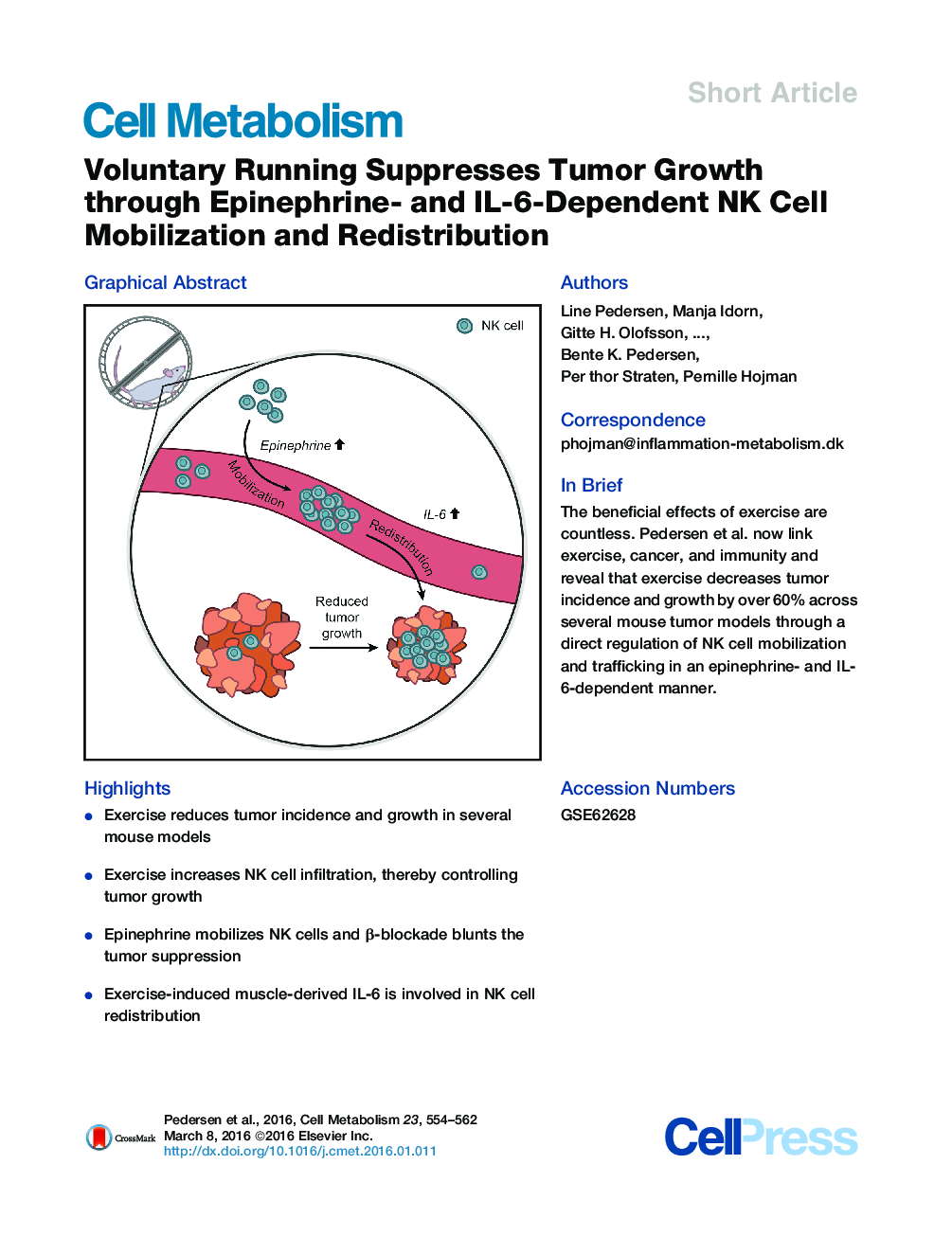| Article ID | Journal | Published Year | Pages | File Type |
|---|---|---|---|---|
| 2792538 | Cell Metabolism | 2016 | 9 Pages |
•Exercise reduces tumor incidence and growth in several mouse models•Exercise increases NK cell infiltration, thereby controlling tumor growth•Epinephrine mobilizes NK cells and β-blockade blunts the tumor suppression•Exercise-induced muscle-derived IL-6 is involved in NK cell redistribution
SummaryRegular exercise reduces the risk of cancer and disease recurrence. Yet the mechanisms behind this protection remain to be elucidated. In this study, tumor-bearing mice randomized to voluntary wheel running showed over 60% reduction in tumor incidence and growth across five different tumor models. Microarray analysis revealed training-induced upregulation of pathways associated with immune function. NK cell infiltration was significantly increased in tumors from running mice, whereas depletion of NK cells enhanced tumor growth and blunted the beneficial effects of exercise. Mechanistic analyses showed that NK cells were mobilized by epinephrine, and blockade of β-adrenergic signaling blunted training-dependent tumor inhibition. Moreover, epinephrine induced a selective mobilization of IL-6-sensitive NK cells, and IL-6-blocking antibodies blunted training-induced tumor suppression, intratumoral NK cell infiltration, and NK cell activation. Together, these results link exercise, epinephrine, and IL-6 to NK cell mobilization and redistribution, and ultimately to control of tumor growth.
Graphical AbstractFigure optionsDownload full-size imageDownload high-quality image (178 K)Download as PowerPoint slide
